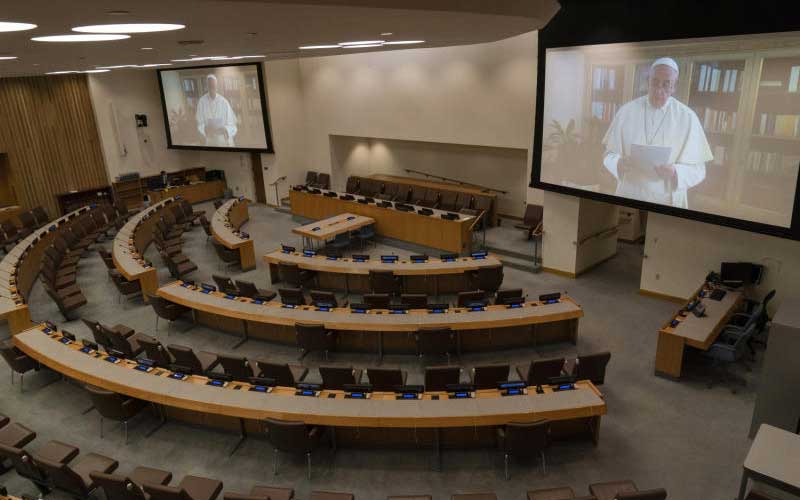×
The Standard e-Paper
Fearless, Trusted News

Pope Francis is seen on a video screen in an empty conference room at United Nations headquarters as he speaks in a pre-recorded message addressing the 75th session of the United Nations General Assembly the 75th session of the United Nations General Assembly, Friday, Sept. 25, 2020, at UN headquarters. [AP]
For the first time since the establishment of the United Nations in 1945, the UN General Assembly was held virtually because of the Covid-19 global pandemic.